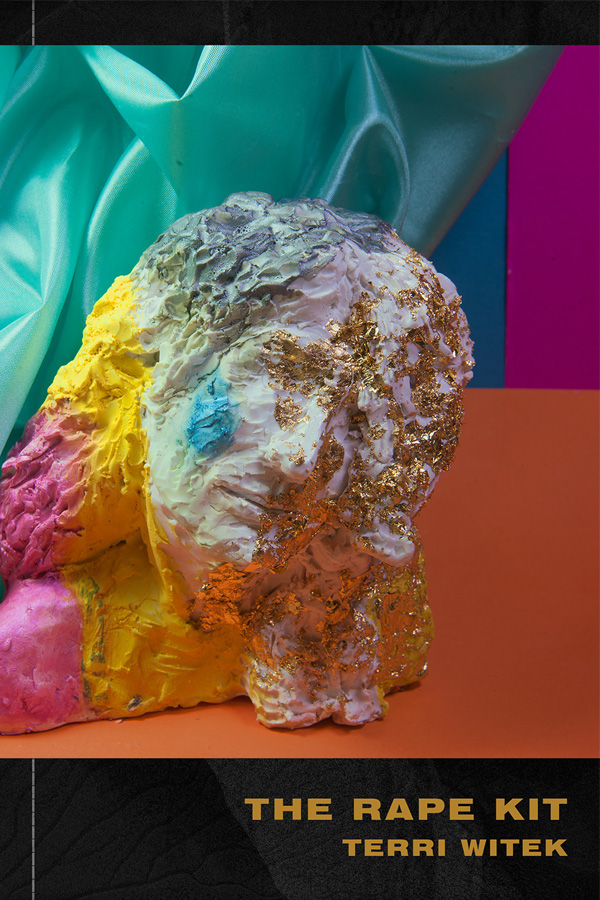The Rape Kit
Poems by Terri Witek
Terri Witek’s The Rape Kit is a powerful procedural collection of poems that unearths the obstructionist nature of the bureaucratic apparatuses that proclaim to attend to the trauma of sexual violence. But that’s just the beginning. The range and depth of this book is astonishing in its precision, and it its probing. The Rape Kit manages an unrelenting force of return to languages of steely repression, thereby stealing power from the gaze of the apparatuses and those behind it. It is a miraculous accomplishment. Witek’s collection is rare and necessary and a fire in the throat of a culture that has no appropriate language for rape and its aftermath. Her approximation here strokes the aura of a pain that cannot be spoken. It takes multiple approaches—renderings of interior architectures, absences, diagrams, historical overlay, erasures, and language repetition— but in the end, Witek’s The Rape Kit is a grand success, the best we’ll get. Fresh, relevant, and heartbreaking.
– Dawn Lundy Martin
Be here with the mind/body that—traumatized—seemingly can no longer locate the pertinent evidence, or, rather, be here with the (whole) being who (traumatized) understands how wide and wild the pertinent evidence actually is: be prepared to marvel at this gorgeous willingness to explore every possible response, resonance, strategy, this astonishing human inclusiveness. Think on and into the word “pertinent”: the idea of…—as opened by this work—and its synonyms: relevant, germane, material. What is the cost of an insistence on logic, what does our legal system leave out? What connections have we ignored in our effort to narrow the definitions of the pertinent? Poetry (which might be said to be always, in some ways, a rape kit—requiring investigation) comes, here, to ask what it is to be alive and what it means to have been violated. And then to ask further, deeper: why haven’t we examined what happens around the violence, why haven’t we accounted for how the images linger in memory, what sounds and resounds there, and how all intimacy is inflected, after. Witek’s explorations are just what we need: courageous, unfettered, proceeding through associative, poetic truths, shimmering images, and magic, complex and original, questions and answers. The sad and hopeful truth is that almost everything is or will be evidence. As Teju Cole puts it (Blind Spot), “the code is made of wounds.”
– Laura Mullen
With its virtuosic interplay of narratives, lists, drawings, maps, quizzes, interviews, and readymades, The Rape Kit is at once difficult, beautiful, and necessary. More than a Reznikoffian poetics of testimony or a feminist poetics of testimony, and beyond male-dominated hemispheric avant-gardes (Anglo-American experimental writing, Latin American concrete poetry and poetic actions), Witek’s is a process poetics that demands we interrogate our own complicities, our darkest evidentiary impulses. (How do we respond to piercing, jagged lyrics framed by fingerprints and transcriptions?) Somehow, in this process or proceso [trial], Witek finds a muse, a counterarchival music, somewhere between chorus and khôra. Echoing through the book is the voice of Arethusa, the Greek nymph and Nereid, whose first-person account of her rape haunts and subverts the hegemonic violence of Ovid’s Metamorphoses. In an age of pushback against revanchist patriarchy, this book could not be more timely, but it is also crucially untimely, urging us to do the seemingly impossible with all the potentialities of language: “Forget about hunger. Forget about the next awful music. / That’s it. Let go.”
– Urayoán Noel
